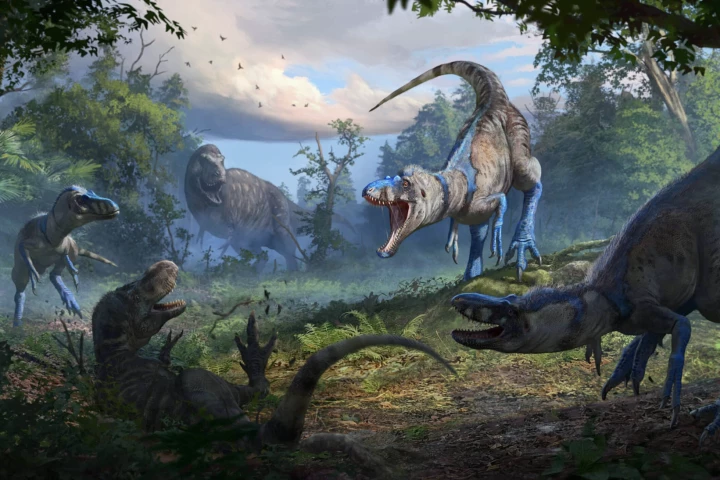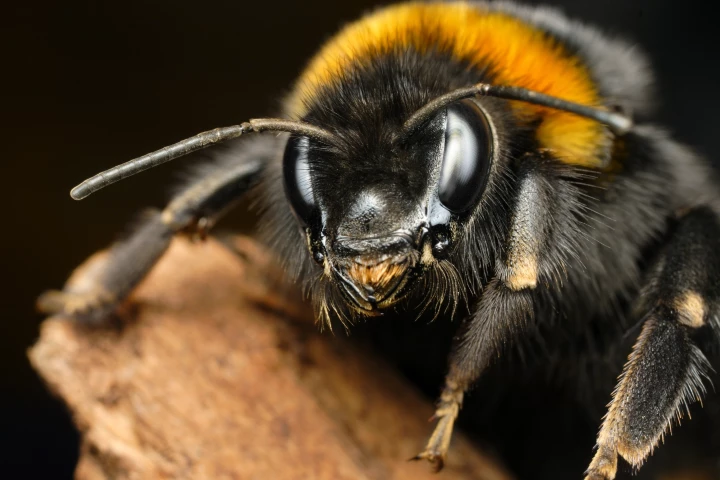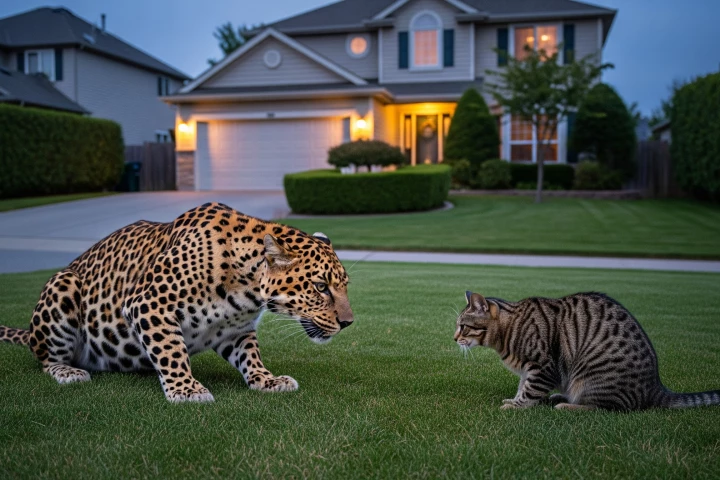Biology
From the smallest microbe to the largest dinosaurs and from the tiniest spore to the biggest giant sequoia, biological research continues to shed new light on the weird and wonderful world of living organisms.
Top News
-
We're one step closer to that elusive goal preventing hair loss and enabling new growth, as scientists identify the crucial role that one all-important protein has in protecting the hard-working cells on the production line.
-
Dinosaurs may be long extinct, but 2025 made it clear that they’re anything but settled science. New fossils, reanalyses of famous specimens and increasingly sophisticated tools have helped us learn more about how they lived, moved, fed and evolved.
-
You could compensate for broken speakers by cranking up the volume on others that still work. It turns out that the brain does the same thing when damaged hair cells in the ear lead to hearing loss – and this could be causing your tinnitus.
Load More
Latest News
-
February 16, 2026 | Jay KakadeThe earliest ancestors of all backboned animals, including humans, may have viewed the world with four eyes, not just two, according to a new study. The remnants of those extra eyes persist deep in the human brain today as the pineal organ.
-
February 10, 2026 | Jay KakadeFor the first time, researchers have tracked how deer use photoluminescent markers as signposts on trees to communicate with one another. Their unique visual acuity allows them to see in ultraviolet wavelengths invisible to human eyes.
-
February 10, 2026 | Michael FrancoResearchers have discovered a certain kind of sugar that is only found on the surface of bacteria. Targeting it could lead to an entirely new class of immunotherapeutic drugs designed to target and eliminate at least one deadly, drug-resistant bug.
-
February 07, 2026 | Jay KakadeNew research has found when plant leaves physically touch each other, they seem to form a biological signalling network to warn each other about upcoming stress. This boosts resilience to intense light, a common environmental challenge.
-
January 25, 2026 | Bronwyn ThompsonFor the first time, we know more than we ever expected to know about the sex lives of the majestic beluga whale. It's complicated, to say the least, but it also shows just how strategic nature is at keeping an isolated group of animals alive.
-
January 24, 2026 | Jay KakadeA new study reveals jellyfish not only sleep but do so for the same portion of their day as humans, spending about one-third of the day sleeping. The findings also suggest that sleep evolved way before the brain to help maintain cells under stress.
-
January 13, 2026 | Bronwyn ThompsonFor more than a century, biologists assumed that the bony plates found in the skin of lizards – nature's chain mail – were an ancient feature that some lineages inherited and others later lost. But new evidence suggests this is entirely wrong.
-
January 11, 2026 | Chelsea HaneyWhen COVID-19 lockdowns emptied city streets, urban environments changed almost overnight. New research suggests that Los Angeles city birds responded just as quickly, with measurable shifts in beak shape in offspring born during the lockdown period.
-
December 30, 2025 | Bronwyn ThompsonIt's that time of year – and my personal favorite corner of science to look back on – when we recap the many fascinating discoveries in the plant and animal kingdom in 2025. Orcas have again made news, but no luxury yachts were hurt in the process.
-
December 21, 2025 | Chelsea HaneyStep aside, Van Gogh. New research shows that several orb-weaving species create giant web-mounted “doppelgängers” convincing enough to confuse potential predators. It’s a clever form of deception that nudges the line between instinct and ingenuity.
-
December 12, 2025 | Michael FrancoFor the first time ever, a unique cooperative hunting arrangement between dolphins and orcas has been documented. Researchers believe killer whales find salmon by tailing dolphins, who in turn benefit from bite-sized fish pieces.
-
December 11, 2025 | Bronwyn ThompsonDeep in the growth rings of Pyrenean trees lies the strongest evidence yet for what set the Black Death in motion – a direct link between a sudden climate shift and the plague’s arrival in Europe, where it killed millions between 1347 and 1353.
-
December 09, 2025 | Jay KakadeMost pet dogs carry a little wolf inside them; tiny snippets of wolf DNA that slipped into dog genomes after domestication. Now a new study has found almost two-thirds of dog breeds have a small amount of wolf genes, including some breeds you wouldn't expect.
-
December 07, 2025 | Chelsea HaneyIn a groundbreaking new study, scientists took a closer look at how bumble bees respond to positive experiences inside the nest. They found positive attitudes are quite literally contagious, spreading between bees within seconds.
-
December 07, 2025 | Chelsea HaneyIn recent months, AI-generated wildlife clips have flooded social media, merging real animal behavior with playful fabrications but scientists warn that these digital deepfakes can distort people’s sense of what the natural world looks like.
Load More

















